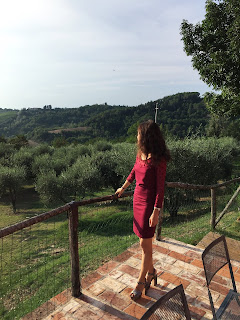“Non desideravo protezione e neppure il solito 'diventare felice'. Io mi volevo realizzare fino all'ultima possibilità, sia attraverso la gioia che attraverso il dolore.” (Isolde Kurz)
Tuttavia anche Lilith e Adamo, nel loro breve idillio, hanno concepito un figlio, che è destinato a portare avanti l’opera evolutiva iniziata dalla madre. Ogni qual volta i suoi fratellastri, i figli di Eva, si troveranno a un momento storico di svolta, Dio rimanderà sulla Terra questo bimbo benedetto sotto varie vesti e incarnazioni: artista, condottiero, filosofo, scienziato… in ogni caso guida e luce per l’umanità deviata.
Dunque qual’è, per noi, il messaggio di questo poema? Chi è questa nuova Lilith e chi sono i suoi figli?
La Lilith di Isolde Kurz è l’emblema di una femminilità emancipata e al contempo non in contrasto con l’uomo: ciò è possibile solo se la donna riesce ad armonizzare in sé sapientemente i propri aspetti femminili e maschili. “Donna, conosci te stessa”, potrebbe essere il messaggio di Lilith per il femminile contemporaneo. Ciò significa: esplora le tue passioni, coltiva i tuoi talenti, realizza le tue potenzialità, siano esse di madre o di artista, di scienziata o di cuoca…ma soprattutto non lasciare che siano altri a dettare cosa devi essere. Impara a separare l’oro di chi sei realmente dal piombo delle convenzioni sociali, dalle frustrazioni e illusioni di madri e nonne, dalle paure e inibizioni di secoli di società patriarcale, dall’inconscia ricerca del Principe Azzurro e della Famiglia del Mulino Bianco.
I figli di Lilith
E chi sono, oggi, i figli di Lilith? Sono tutti coloro che sentono dentro di sé il richiamo verso un orizzonte più libero e più ampio, che non si stancano di migliorarsi, di trascendere i propri limiti, di bruciare il proprio egoismo e la propria negatività. Sono tutti quegli uomini e donne che stanno attivamente lavorando dentro e fuori di sé affinché l’umanità possa essere ancora degna di questo nome.
Il riscatto
Nel panorama attuale di costante violenza, mortificazione e abbrutimento, il mio augurio è che risorga velocemente il Femminile in tutta la sua potente bellezza e sovversivo splendore. Saranno proprio la sua forza di rinnovamento, la sua capacità di empatia e il suo innato gesto d’amore a portare conforto e riscatto alla Vita su questo pianeta, risanandone le ferite e ristabilendone la pienezza e l’armonia.
Il libro 'I figli di Lilith" si può trovare al link I figli di Lilith
L'articolo si trova nella rivista MediCoscienza, disponibile anche online al seguente link MediCoscienza 3





























